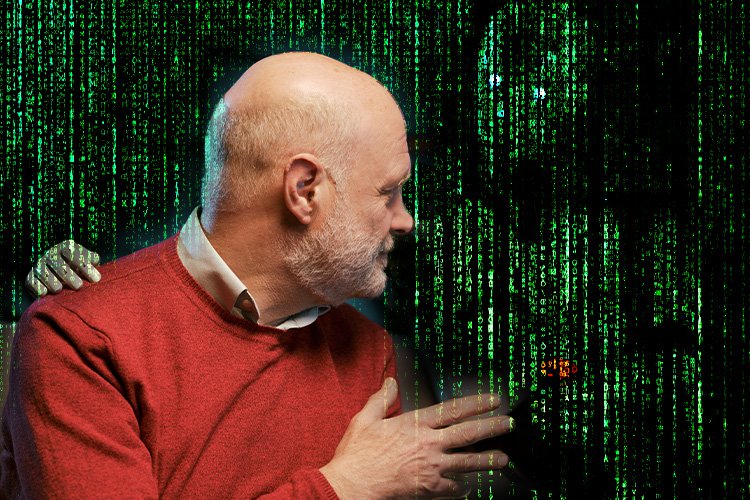New research reveals the impressive yet disturbing capacities of AI text generators, like OpenAI’s ChatGPT-3, indicating it can dispense truthful and untruthful information more convincingly than human beings on social media platforms.
The study, recently published in Science Advances, highlights the extraordinary ability of sophisticated AI language models to emulate human writing and the challenges associated with identifying synthetic or AI-generated content.
Dr. Federico Germani, a co-author of the recent study and researcher at the Institute of Biomedical Ethics and History of Medicine at the University of Zurich in Switzerland, emphasized the necessity of understanding the impact of AI-generated disinformation on individual and public health.
“Our research group is dedicated to understanding the impact of scientific disinformation and ensuring the safe engagement of individuals with information. We aim to mitigate the risks associated with false information on individual and public health,” Dr. Germani told PsyPost.
“The emergence of AI models like GPT-3 sparked our interest in exploring how AI influences the information landscape and how people perceive and interact with information and misinformation.”
Introduced in 2020, OpenAI’s ChatGPT-3 has become a game-changer in the AI landscape, capable of producing astonishingly believable and authentic texts based on prompts.
AI text generators, like ChatGPT-3, offer a myriad of potential uses, such as creating interactive chatbots, enhancing translation software, aiding in academic research, streamlining customer service responses, and even generating new creative content such as poetry and short stories.
However, the potential misuse of this powerful technology raises significant concerns, especially its capacity to create disinformation and misleading content. These concerns are even more pressing given the rise of social media and its ability to significantly increase the speed and breadth at which information, including misinformation and disinformation, can spread.
Amplifying the issue, another recent empirical study found that people often overestimate their ability to detect false or misleading information in what researchers affectionately call the “bullshit blind spot.”
Events in recent years, like the COVID-19 pandemic or Russia’s invasion of Ukraine, have underscored the potential for misinformation and disinformation to significantly influence public opinion, health behaviors, and policy decisions.
Companies have actively tried to mitigate the spread of false information on their platforms. Nevertheless, Meta’s 2023 first-quarter Adversarial Threats Report conceded that covert influence operations, cyber espionage, and private for-hire disinformation networks remain significant problems across social media.
Given AI-text generators’ rising influence and popularity, Dr. Germani and his colleagues decided to explore how well people can distinguish between human-generated content and text created by ChatGPT-3.
The study design involved 11 subjects often susceptible to disinformation, such as climate change, vaccine safety, COVID-19, and 5G technology. Utilizing ChatGPT-3, they created synthetic tweets encompassing truthful and false information for each topic. They also gathered a random sample of authentic tweets from Twitter on the same subjects, which included both truthful and inaccurate content.
Expert assessments were used to classify the gathered tweets into four categories: synthetic false, synthetic true, organic false, and organic true.
A sample group of 697 study participants, mainly from the United Kingdom, Australia, Canada, United States, and Ireland, were then asked to identify whether a tweet contained true or false information and whether it was created by a human or ChatGPT-3.
The results showed that people were more proficient at identifying disinformation in “organic false” tweets (written by real users) compared to “synthetic false” tweets (created by ChatGPT-3).
Conversely, people were more inclined to correctly recognize accurate information in “synthetic true” tweets (generated by ChatGPT-3) compared to “organic true” tweets (written by real users).
The study revealed that participants often struggled to differentiate between tweets authored by humans and those created by ChatGPT-3.
“The results suggest that GPT-3 may be more efficient at conveying information because it can generate text that is easier to read and understand compared to text written by humans,” researchers wrote.
During the study, researchers noted that ChatGPT-3 occasionally declined to create disinformation, particularly when prompted to produce false information about vaccines and autism. However, in some instances, ChatGPT3 would generate false information even when tasked to produce accurate content.
Intriguingly, researchers found that ChatGPT-3 did not perform better than humans in recognizing information and disinformation, demonstrating that the AI-language model was essentially “unaware” of the veracity of the information it was prompted to produce.
Dr. Germani stressed the controlled experimental environment of the study, noting that while it raises concerns about AI’s potential to generate persuasive disinformation, the real-world implications still need to be fully understood. He suggested larger-scale studies on social media platforms to better understand how people interact with AI-generated information and how these interactions shape behavior and adherence to public health recommendations.
Ultimately, the study illuminates the unprecedented capabilities of AI text generators and underscores the urgent need for vigilance and literacy in the digital age.
While AI brings enormous benefits, its potential uses and abuses will undoubtedly become more complex as the technology evolves.
“As demonstrated by our results, large language models currently available can already produce text that is indistinguishable from organic text; therefore, the emergence of more powerful large language models and their impact should be monitored,” researchers wrote.
“It is crucial that we continue to critically evaluate the implications of these technologies and take action to mitigate any negative effects they may have on society.”
Tim McMillan is a retired law enforcement executive, investigative reporter and co-founder of The Debrief. His writing typically focuses on defense, national security, the Intelligence Community and topics related to psychology. You can follow Tim on Twitter: @LtTimMcMillan. Tim can be reached by email: tim@thedebrief.org or through encrypted email: LtTimMcMillan@protonmail.com

